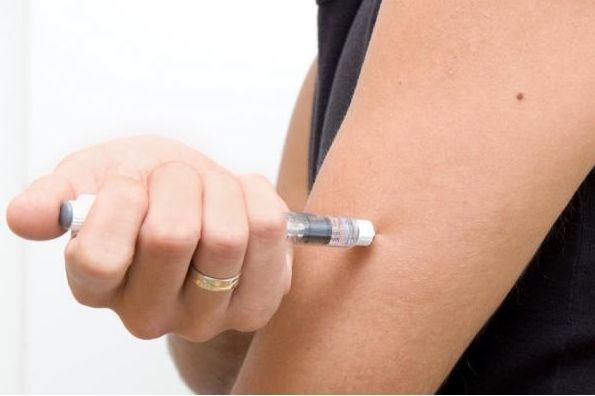Diabetes is a problem that is on the rise at a very rapid pace. If correct measures are taken on right time a lot of health problems can be prevented. Often people think that controlling diabetes means living in deprivation. Diabetics feel depressed mostly when they are put on strict diet. They need to cut back on most of their favorites especially desserts and sugary foods. But the fact is that preventing and controlling diabetes means eating a tasty and at the same time a balanced diet that will boost your energy level and improve your mood. Balance is the keyword to a healthy living and diabetes control.
Symptoms of Diabetes
It is important to know the symptoms of diabetes and the causes responsible for the disease before consulting a physician. The signs of diabetes are quite visible in persons who suffer from it. They usually feel tired, lethargic, lack energy to carry out regular activities, feel weak and frequent urination is the main sign of diabetes. But why does this happen?
Causes Of Diabetes
Diabetes is caused because the pancreas that is responsible for producing insulin and other digestive juices, do not produce enough quantity of insulin that is necessary to turn glucose into energy. It may also happen that the body does not respond to the insulin produced by the pancreas. The glucose that enters the body when we eat carbohydrates is not changed into energy and the glucose level rises up. This condition of the body when there is excess of sugar in your blood is known as Diabetes. Once you are aware of the problems associated with Diabetes, you should consult the doctor for immediate remedies. Any problem that is tackled right from the start can be reduced to a great extent. Hence the advice of the doctor is very important in cases of Diabetes both the Type 1 and Type 2.
How Diabetes Is Managed
Taking control of diabetes is not very easy. But if you are consistent on four major points you can surely make a difference in your glucose level. The 4 vital steps to take when you want to control diabetes are: –
1. Making changes in lifestyle.
2. Controlling diet.
3. Enough of activities or exercises under a professional trainer to choose the proper fitness workouts that will use the energy from glucose and not allow it to accumulate in the body as fat.
4. Reduce weight.
Importance Of Diet In Managing Diabetes
Eating right is the most important point when you are trying to control or prevent diabetes. Other factors are no doubt important like exercises and losing weight, but what you consume have the biggest effect on your health. What is the meaning of eating right for diabetes? It is surprising to know that no special diets are required to manage diabetes. You can have almost everything that others have. The main point is that a diabetes diet is a healthy eating plan that has the required essential nutrients but is low in fat and sugars. Counting calories is vital in a diabetes diet. If you choose your carbohydrates carefully, you will not have much of a problem in managing diabetes.
How To Control Diabetes?
There are 3 major steps that you need to take to control diabetes and know the vital elements that affect blood sugar and blood lipids levels which are the following:
• What you eat
• When you eat
• The amount you eat.
Now let us consider these 3 vital points that help in managing diabetes in details.
1. Selecting The Right Foods
A balanced diet consists of adequate quantity of the essential nutrients like proteins, carbohydrates, fats, vitamins, iron, calcium etc to maintain health and all the body to function properly. In case of diabetes, certain changes are required in this regular diet plan. It is because you cannot use the insulin produced to utilize the carbohydrates as energy sources or may be your pancreas does not produce insulin at all. So the intake of carbohydrates has to be calculated properly so that there is no accumulation of excess fat in the body. So what should a diabetic eat?
Here is a short list of foods that you can eat to manage and control diabetes:
a. Carbohydrates required by the body are available in fruits, vegetables, breads, pastas, yoghurt and sweets. For a diabetic, dark green leafy vegetables are very important and safe too as they have a lot of fiber that controls glucose.
b. Fruits that are low in sugars but rich in vitamins, calcium and others like grapes, guavas, strawberries etc are best for a diabetic.
c. Sweets should be avoided, mostly before going to bed; yoghurt is one of the best foods that offers amazing effects on health and diabetes and it contains proteins too.
d. As for the breads and rice you can have brown bread and brown rice. They are full of vitamins as well as fibers to control diabetes and maintain your health.
e. The protein contents in your diet should be around 15% to 20%. Your choice of proteins should be the lean meats and fish that have Omega3 fatty acids.
f. Fats should constitute 20% to 35% of your diet but they must be the unsaturated fats that do not increase your weight. Weight gain slows down the control level of diabetes.
2. Eating At Regular Intervals
The body is able to control your blood sugar levels as well as your weight better when the meals are scheduled properly. You must aim to remain consistent in your meal timings. Always remember the following points:
• Do not skip your breakfast rather take care to eat a good breakfast to maintain your energy level and control your glucose level throughout the day.
• Eat regular small meals. Never stuff yourself for once that you will stay full for many hours. It is a bad idea especially for diabetics. Small meals will keep a check on your portions.
• Maintain the same amount of calorie-intake daily. It has great impact on regulating blood sugar levels.
3. Amount Of Food You Eat
Doctors give great stress on the amount of food that you take. It must be a balanced diet every day. The portion sizes are usually designed by the doctor or dietician who calculates the amount of carbohydrates, proteins or fats that each person requires according to his/her sugar level and other factors so that you do not lack any of the essential elements required by the body to maintain glucose level as well as health. Once the calories are determined, it is your duty to maintain it so that you stay well and enjoy all kinds of foods without feeling sick or increasing the glucose levels.
The best way to manage your diet is to keep a count on your calories. Always keep an eye on what you eat maintaining a balance in the essential elements. If you adhere to your meal plan and portion sizes and eat at regular intervals you will reap great results in diabetes management and stay healthy for many years and control many of the effects of diabetes. But always remember to consult your physician before taking any decisions regarding medications.




